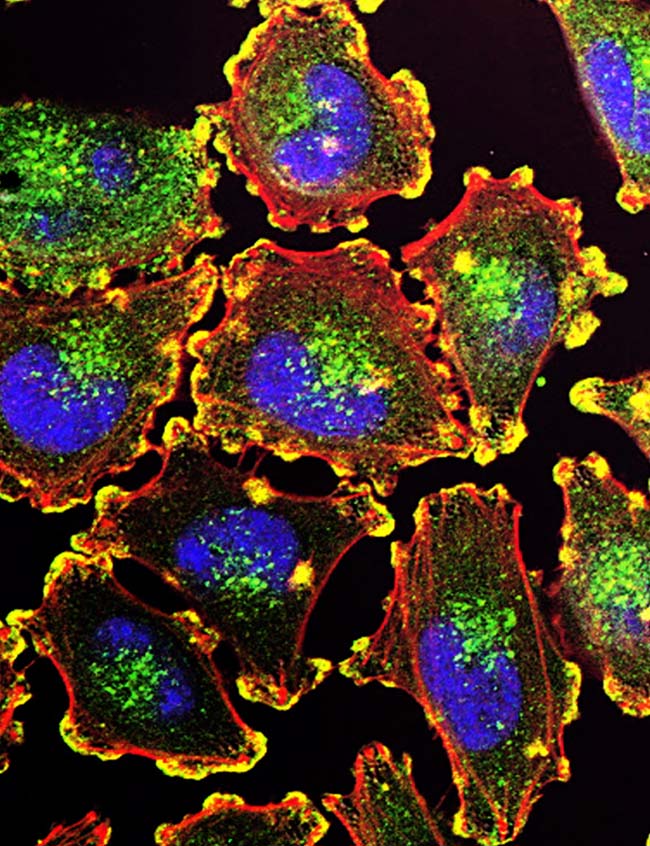Expert opinion
The New Technologies That Are Driving M&A in Healthcare & Life Sciences
What new technologies are driving M&A in the healthcare & life sciences sector?


Since the massive investment spike in the healthcare and life sciences industry around Covid-19, M&A activity has remained remarkably strong. Although macroeconomic pressures including tougher regulatory environments and higher interest rates have created adverse headwinds, the sector has demonstrated remarkable resilience, with deal activity and investment volumes showing consistent growth since 2023.
The UK market has played a key role in driving this growth with British companies becoming increasingly attractive M&A targets. The UK biotech sector, for example, raised £3.5 billion in equity funding in 2024 (up 94% on the previous year)* and has been the focus of a number of significant international deals, including Danaher Corporation's $5.7bn acquisition of Cambridge-based Abcam, and Kyowa Kirin's £393m acquisition of gene therapy specialist Orchard Therapeutics.
New Developments
Interestingly, there has been a transition in investment focus in the sector from primarily biopharma in 2023 to a more varied one this year where we have witnessed a significant increase in healthtech and medical device deals in the first half of 2025. The strong performance and growth in the sector amidst economic pressures, coupled with this investment transition, points towards changing dynamics driven by the continued development of machine learning and the continued integration of technology across the sector.
The growing accessibility of biological data, coupled with cutting edge technologies, is also creating a huge range of economic and environmental opportunities across the industry. Not too long ago, the drug discovery market was completely dominated by big pharma. Since 2020 however, SMEs have been playing an ever-increasing role in contributing to innovative drug discovery, demonstrating how technology is creating new opportunities for smaller entrepreneurs.
One subsector which has also evolved significantly over the last five years is computational biology which uses computer science, mathematics, and statistics to analyse and understand large amounts of biological data. In this niche, global? deal volume increased from $1.7bn the first half of 2023 to $4.4bn in the first half of this year.**
Fuelling this growth is the integration of algorithmic tools to improve the quality and efficiency of research. The Nobel Prize-winning AlphaFold, for example, has demonstrated its capabilities to predict the structure of biological structures more accurately and faster than traditional methods. Its success has enabled breakthroughs in targeted drug development and the creation of enzymes capable of breaking down plastics.
Precision medicine is also increasingly transforming healthcare. Advances in genome technologies are helping to creating faster and more affordable personalised medicines, catering to the unique genetic makeup and lifestyle of each patient.
What This Means for Business Owners and Entrepreneurs
Looking to the future, the life-sciences sector is expected to grow at a significant 10.3% CAGR until 2033***. Investor sentiment is very positive, reflecting the expectations that biotechnology and AI will play an increasing role in revolutionising global healthcare systems, ultimately contributing to addressing some of most pressing health challenges. As such, experts predict that the sector may reach the pre-pandemic levels of investment
As drug patents expire, it will also become increasingly important for large-cap pharma companies to acquire innovative biotech SMEs for them to retain their competitive advantage and market share in an evolving environment. For entrepreneurs and SMEs, this next decade will play a pivotal role in generating opportunities to break into the once ultra-competitive healthcare and life sciences space.
Oliver Roper is a Manager at Shaw & Co.
If you'd like to discuss how Shaw & Co can help you sell, buy or fund the growth of a business, please book a meeting here
Specific Sources
** https://www.hsbcinnovationbanking.com/gb/en/resources/2025-1h-venture-healthcare-report
Other Sources
Biospace, 2024: ‘Genesis Therapeutics Announces New Equity Investment and Collaboration with NVIDIA to optimise Key Computational methods for AI-powered Drug Discovery’.
DDW, 2025: ‘Seven new drug discovery deals powered by AI’.
GreyB, 2024: ‘Top 10 Startups Leading Drug Discovery and Development using AI’.
J.P Morgan, 2025: ‘2024 Biopharma industry insights: Investment Trends, M&A activity and Market Dynamics’.
LABIOTECH, 2025: ‘2025 Predictions: Which trends are set to shape the biotech industry this year’
Okuyma, R. 2024. ‘Increased contribution of small companies to late-entry drugs: a changing trend in FDA-approved drugs during the 2020s’.
Pharmaphorum, 2025: ‘AlphaFold 3 takes structure predictions well beyond proteins’.
SECURITIES, 2025: ‘Top 5 AI & Digital Biotech Companies (July 2025)’.
INDUSTRY Content

The Shaw Report: Banking, Financial & Insurance Services - Annual Report #2
Shaw Report
|
February 28, 2023

The Shaw Report - Healthcare & Life Sciences Annual Review December 2022
Shaw Report
|
December 14, 2022

The Shaw Report - Wholesale & Retail Trade Industry Interim Review December 2022
Shaw Report
|
December 14, 2022

The Shaw Report - Leisure, Tourism and Sport Annual Review November 2022
Shaw Report
|
November 29, 2022

The Shaw Report - Property & Construction Industry Interim Review November 2022
Shaw Report
|
November 23, 2022

The Shaw Report - Technology Media & Telecoms Industry Annual Review October 2022
Shaw Report
|
October 19, 2022

The Shaw Report - Automotive, Transport & Logistics Industry Annual Review October 2022
Shaw Report
|
October 12, 2022

The Shaw Report - Professional Services Industry Interim Review September 2022
Shaw Report
|
September 26, 2022

The Shaw Report - Manufacturing & Engineering Industry Annual Review September 2022
Shaw Report
|
September 1, 2022

The Shaw Report - Banking, Financial and Insurance Services Industry Interim Review August 2022
Shaw Report
|
August 23, 2022
Subscribe for updates


Subscribe to receive news updates, Connected Magazine, details of forthcoming events, opinion and industry topics that matter to you, and more.



































